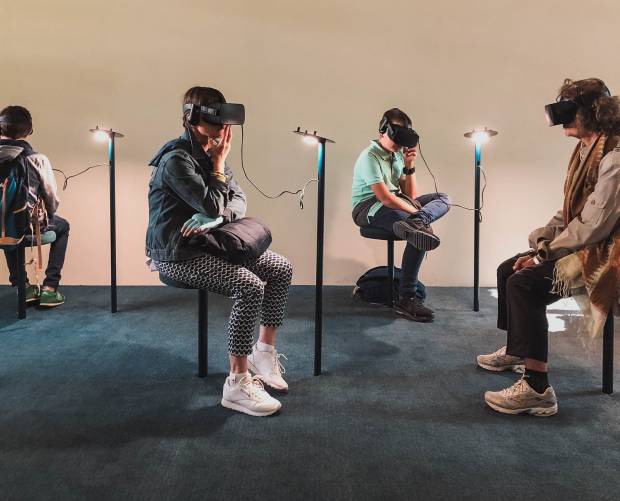 It’s great to see a few mobile-focused April Fool’s stories doing the rounds today. (Did you spot ours?) My personal favourites are the Tesco Cudl, a two-tablet combi “designed to put relationship harmony at the heart of your digital life” and one from DeviceScape about wi-fi signals being detected on Mars.
It’s great to see a few mobile-focused April Fool’s stories doing the rounds today. (Did you spot ours?) My personal favourites are the Tesco Cudl, a two-tablet combi “designed to put relationship harmony at the heart of your digital life” and one from DeviceScape about wi-fi signals being detected on Mars.
Somo also chipped in with Chasterr, an app that monitors a body’s response to different external stimuli; as did Bango with the Bango Belt, which “gives the wearer real-time feedback on charges to their mobile phone bill and the ability to control spending limits by adjusting the belt.” On top of that, there’s Sony’s Power Food, Nokia’s resurrection of the 3310, and SwiftKey’s Flow Hard, a version of its predictive text tech for physical keyboards.
And yet, as I write this, I’m not 100 per cent sure whether all of these stories are actually fake. I sat in on a panel debate at Ad Week yesterday where one of the panellists recounted how one of her colleagues had said to her: “Anything’s possible now. If you can imagine it, you can do it.”
[caption id="attachment_42680" align="alignright" width="300"] The Smart Ring[/caption]
The Smart Ring[/caption]
And this uncertainty about whether some of the more ridiculous stories in my inbox today are true or made-up nonsense makes me realise how right she is.
Take this one, for example, which also dropped into my inbox today. It’s a Smart Ring being developed by WonderRing Lab. The ring, so says the release, will be able to control electrical devices such as TVs, audio systems, lights and even a cleaning robot. It will also monitor the user’s heart rate and body temperature.
Clearly, utter hogwash, albeit with some convincing photography to help convince you that it might be real. Or maybe it is real. After all, if Sony had released details of its Smart Wig today rather than a few months back, would anyone have taken that seriously?
It’s just as bad out in the real world. The BBC today has 10 stories that look like April Fools but aren’t, including one about traditionalists in Brittany, upset by the spread of multiple cheek kissing, who have launched a campaign called ‘The Group of the Rehabilitation of the Single Kiss in Brest.’ And another about a man who lost 14st in weight by morris dancing.
When stories as daft as this are actually true, how are you supposed to spot the fakes? More to the point, how do you stop someone picking up a fake story and then making it a reality, as happened to us a few years ago?
We try to run an April Fools story every year. On 1 April 2007, we ran one about a plan to launch a technology platform that would enable you to control your dog via text message. When we got to Mobile World Congress the following February, someone had launched exactly that.
On days like today, I realise how glad I am not to be a Venture Capitalist. With the number of mad ideas they get pitched earnestly to them, they must think it's April Fools day every day.




